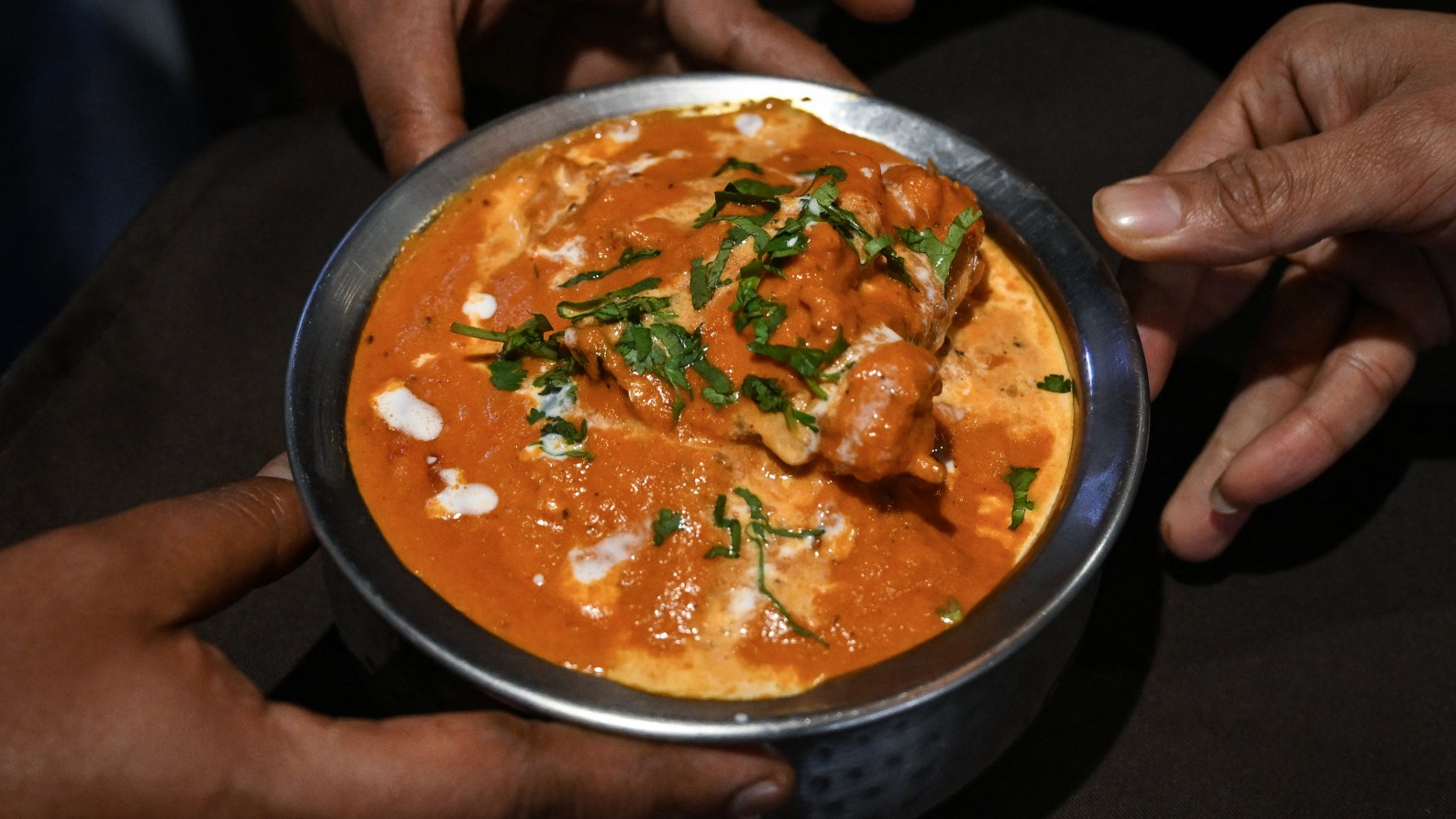Play all audios:
The old saying "too many cooks spoil the broth" is playing out in a Delhi court room with the culmination of a long-running culinary row over the origins of butter chicken. The
famous dish, made in a thick tomato-yoghurt sauce with butter and mild spices, has "inspired mystery novels, travelogues, and countless restaurant orders", said the BBC. "But
the comforting curry that people from around the world turn to as a familiar favourite has now become the subject of a messy court battle." Its origin story is at the heart of the
"saucy real-life drama roiling India", said The Wall Street Journal (WSJ). SUBSCRIBE TO THE WEEK Escape your echo chamber. Get the facts behind the news, plus analysis from
multiple perspectives. SUBSCRIBE & SAVE SIGN UP FOR THE WEEK'S FREE NEWSLETTERS From our morning news briefing to a weekly Good News Newsletter, get the best of The Week delivered
directly to your inbox. From our morning news briefing to a weekly Good News Newsletter, get the best of The Week delivered directly to your inbox. WHAT IS THE CLAIM? The origins of butter
chicken date back to before India's independence, and a popular restaurant called Moti Mahal in Peshawar, now in Pakistan, run by Mokha Singh and two of his employees – cousins Kundan
Lal Gujral and Kundan Lal Jaggi. Following partition, in 1947, the restaurant reopened in Delhi, where, legend has it, butter chicken was invented. The dish was long attributed to Gujral and
was said to have been born out of frugality, with leftover tikkas mixed together with a thick tomato gravy and dollops of butter. Within a year, Moti Mahal had become a favourite of
ministers and heads of state. India's first prime minister, Jawaharlal Nehru, dined there, as did Jacqueline Kennedy Onassis and Richard Nixon. Soviet leader Nikita Khrushchev used to
fly Moti Mahal's chefs and platters of chicken to Moscow for state banquets. "Peace treaties were hammered out in the balcony," said The New York Times (NYT) in 1984.
"And M. Maulana Azad, the great Muslim leader, reportedly told the Shah of Iran that while in India he must make two visits – to the Taj Mahal and Moti Mahal." However, the
grandson of Gujral's cousin Jaggi "tells a different story" about the dish for which the restaurant is famed, said the same paper. Raghav Jaggi claims "that his own
grandfather invented butter chicken by chance". In his version of events, late one day, when the kitchen was nearly out of stock and a large group of diners had arrived, his grandfather
made a sauce with "tomatoes, fresh butter and some spices", and then "mixed in pieces of cooked tandoori chicken". Both families now run rival chains and claim to be the
true originators of the dish. Simmering tensions finally boiled over last month when the Gujral family filed a lawsuit against Daryaganj, run by the descendants of Jaggi. The Gujral family
is seeking £188,968 in damages for copyright infringement and unfair competition. The owners of Daryaganj counter that, while Gujral was the face of the Moti Mahal restaurant, it was Jaggi
who handled the kitchen and so the dishes, including butter chicken, were all his ideas. A third Delhi restaurant, the original Moti Mahal, which was sold to another family in the 1990s but
still operates under the name, has also staked a claim, with the owners threatening a lawsuit of their own. DOES IT MATTER? It is "hard to prove that any single person came up with
dishes that have become ubiquitous", said the NYT, "but in the case of butter chicken, much is riding on the verdict – money, mostly, but also the legacy of the storied restaurant
that the two men began building nearly eight decades ago, a span that covers almost all of India's modern history as an independent nation". "The case has sparked amusement
among foodies", said the Financial Times (FT). Yet "it is the latest twist in a wholly serious battle for commercial control of one of India’s most important exports: its
world-famous food". The most contentious of these dates back to the 1990s, when Ricetec, a Texan company, secured a US patent for basmati, "triggering a dispute with New
Delhi". The story of butter chicken can also be "emotive", said the paper, "evoking painful memories of the partition that followed British rule". It is the story of
modern India, in a dish.

